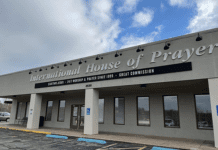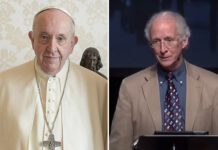Church law requires General Conference to vote on all properly submitted petitions. Lonnie Brooks, a veteran General Conference delegate and now a reserve from Alaska, said delegates could fulfill that requirement by referring any proposals they do not address to the next legislative gathering.
Brooks also has been pushing the commission to plan for going online and talked about the idea with some fellow delegates.
“There are some folks who have reservations about the technology,” he said. “But most folks who have experience using this, especially at their annual conferences, think it’s going to work.”
Bishops preside at General Conference sessions, and many are now old hands at presiding at online meetings, including their annual conference sessions. The Council of Bishops, which includes more than 100 active and retired bishops from around the globe, also has already held an international, multi-day meeting this spring and has another planned in early November.
The East Ohio Conference’s Bishop Tracy Smith Malone, chair of the bishops’ Virtual Task Force, said an online General Conference might be feasible. However, she warned that the scope and needs of a Council of Bishops meeting pales in comparison with what goes into General Conference.
The 10-day legislative session has more in common with the United Nations General Assembly than a typical church meeting.
Multiple interpreters work with hundreds of delegates throughout the gathering to translate proceedings. During the first week of General Conference, delegates meet simultaneously in different legislative committees—14 were planned for this gathering. The delegates then come together to vote in plenary during the second week. All votes are by secret ballot, using secure voting devices.
Even when potential church separation is not on the agenda, General Conference—the only body that can speak for the church—must make big decisions. The conference deals with ordination requirements and social teachings. It also elects members of the Judicial Council, the denomination’s top court, and sets the budget that supports denomination-wide ministries.
With so much at stake, Jessica Vittorio—a delegate from the North Texas Conference—would prefer to see General Conference rescheduled or held off until the next scheduled assembly in 2024.
“I appreciate the potential cost savings a virtual conference could present, and I would be excited to see the church develop means of conferencing that is more financially sustainable,” she said. “However, I have significant concerns regarding representation and accessibility.”
But for many United Methodists, further delay of the General Conference is a non-starter.
Among the separation proposals is the Protocol for Reconciliation and Grace through Separation, a mediated agreement that, if accepted, would allow a new, traditionalist denomination to break away from The United Methodist Church. Amid the postponement, the Wesleyan Covenant Association has continued to work on forming that new denomination.











